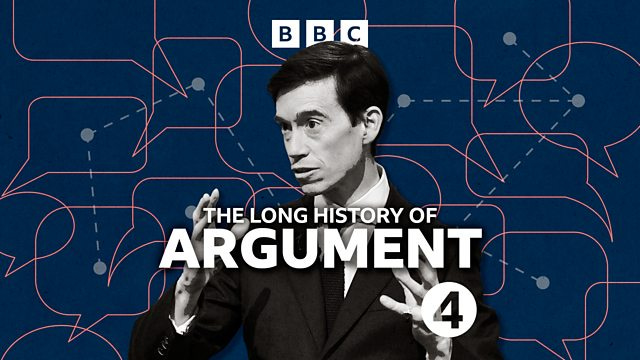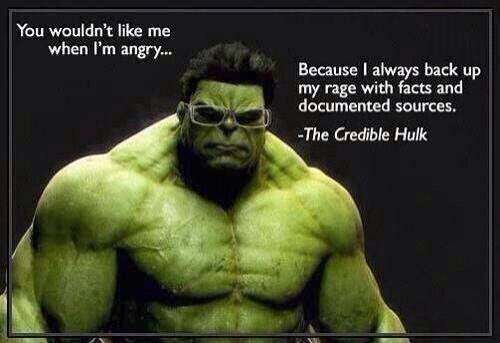Listen and Adapt
Reasonable People #32: the mind's endogenous forces - the "creatures of recursion"! - are stronger than the mere mechanical power of external facts and argument.
Rory Stewart’s 3 part radio series The Long History of Argument is available now from the BBC and recommended. Stewart is a former member of parliament (as well as former soldier and diplomat), so it isn’t surprising that he grounds his story in the argumentative tradition of the Houses of Parliament. In the nineteenth century, Stewart reports, the House was a crucible of argument, the debates determining the business of government. Disraeli (Prime Minister 1868 and 1874 - 1880) spent the whole day in the chamber, running government from the place where the debate happened.
Not so now, laments Stewart. Now the speeches happen to a mostly empty chamber, the few MPs present looking at their phones. The words are not designed to persuade across the opposition but produce sound bites for social media. “Everything Farage said in parliament”, says one interviewee, “was intended for the audience of his YouTube channel”.
As with parliament, so with public life more generally, is the - ahem - argument. Argument is an essential public good, which been corrupted everywhere by the change in the media environment, as everyone seeks the quickest, and most in-group pandering, come backs rather than sustained engagement with ideas. How, asks Stewart, can we begin to rebuild the political and cultural ecosystem in which good argument and persuasion are possible again?
Part of the Stewart’s answer is the we should teach argument again in schools, just as rhetoric was part of a classical education. I enjoyed this list from the show of the value of teaching debate: it teaches you to organise your thoughts, to listen to your interlocutor and adapt what you say to them, and - only then - does it prepare you to persuade. The order pleases me -
Organise thoughts
Listen and adapt
Prepare to Persuade
It would be easy to imagine a shallow account of debate focussing only on the last item - persuading - but Stewart’s account places this last. Rather, he is saying, the value of the training is that it prepares you to enter an argumentative relation.
This reciprocity between interlocutors is key, and tells us why Stewart’s vision of the 19th century houses of parliament won’t be restored. The audience for debates in the House has changed, and changing the parties in a debate must necessarily change the nature of the debate. Argumentative traditions rely on social structures, so when the more insular and elite social structures of parliament changed, to be (relatively) less insular and elite, so did the nature of the arguments. The riddle of our time will be how to sustain genuine engagement across political divides in these new circumstances.
* * *
The other side of argument is an appreciation of what the possible effects could be. David (You Are Not So Smart) McRaney’s new book is “How Minds Change: The Surprising Science of Belief, Opinion, and Persuasion”.
[Full disclosure: I’m a long time enthusiast for David’s work, and he sent me a free copy of the book - thanks David!]
In How Minds Change, McRaney talks to conspiracy theorists, and political canvassers, street epistemologists, psychologists and ex-cultists. One way of reading the book is that, at its core, it is the story of McRaney’s own realisations about persuasion. The question many of us begin with is “how can I change other people’s minds?”, but by the end, the book brings us to recognise that framing the issue this way is unwise.
Once you move from viewing minds as objects which need to be shunted by the mechanical forces of evidence and argument, you can see the crucial truth that the answer to “how do minds change?” is “by themselves” (with sidehelpings of “usually slowly” and “by small increments ”). The groups that have had some success with changing opinions - such those developing the “Deep Canvassing” technique for doorstep conversations around polarising issues - focus more on creating rapport and connecting issues to personal experience than on delivering facts or reasons. The forces internal to each mind are more powerful in creating lasting change than any external force. Each of us should have the humility to recognise that the best we can do is create fertile circumstances for other people to explore an issue.
The culmination of the book is a moment McRaney describes being face to face with someone who volunteered for a discussion designed to change his mind. McRaney describes the toolbox of techniques he had learnt over the five years researching the book, describes considering which to deploy next and… just not, realising that their encounter was already complete without either of them to continue trying to change the other. A nice scenario where the question “how do I change someone’s mind?” simply dissolved, it wasn’t the right question for the moment.
* * *
Rory Stewart’s The Long History of Argument
David McRaney’s How Minds Change
Thanks for reading my increasingly irregular newsletter about reason, argument and persuasion. It’s free and always will be. Read on for more links to interesting reading and listening on the topics.
PAPER: The Zoom solution: Promoting effective cross-ideological communication online
Ashley Binnquist and colleagues recruited participants with differing views on polarising views to have zoom conversations (which they termed “cross ideological conversations”). The good news: most people found the interactions more positive than the anticipated, and the tone of the discussions was rated more friendly and less characterised by conflict the longer it went on. The bad news: having the conversations in the presence of a silent audience degraded the emotional tone, limiting the shift towards a more friendly tone as the discussion progressed.
File under the importance of private spaces for discussion of contentious issues.
Link: Binnquist, A. L., Dolbier, S. Y., Dieffenbach, M. C., & Lieberman, M. D. (2022). The Zoom solution: Promoting effective cross-ideological communication online PloS one, 17(7), e0270355.
PODCAST: Mindscape 78 | Daniel Dennett on Minds, Patterns, and the Scientific Image
Whether you are familiar with Dennett’s work or not, a great summary of his thought
Consciousness is a series of “real illusions”, or, rather, “its real, it just isn’t what you think it is”.
Language “gives us a place to stand in our cognition… it is this which creates the creatures of recursion”, by which he means meta-representation, self-reflection and deliberation and (ultimately, to the topic of this newsletter), argument.
Transcript, audo, etc ; YouTube:
All episode’s of Sean Carroll’s Mindscape
BLOGGING: Contra Dynomight On Sexy In-Laws
Starting with conflicts between parents and offspring in mate choice (e.g. you want to marry someone exciting, your parents want you to marry someone responsible), ACX springboards into a discussion of how reasons may interact with evolved instincts. At what level, exactly, does evolution try and specify desires? Are we better thought of as adaptation-executors, not fitness-maximizers?
So: suitors’ mate choice depends on innate, evolutionarily well-established software. Parents’ mate choice depends on - well, it’s not clear. I tend to think that a few million years between primates without parental mate choice and the current day might not be enough time to give people really good innate parental mate-choice instincts.
So suitors’ mate-choice instincts are probably very finely-honed, specific drives and instincts. There’s some deep animal if-then statement saying that if someone has a youthful-looking face, they’re probably healthy and fertile and you should be more willing to mate with them.
Parents are probably going off of something like a vague desire that their children and grandchildren do well, without any supporting software. That means they have to use their reason to figure out how this cashes out in the real world.
Link: Contra Dynomight On Sexy In-Laws
PAPER: The Diversity of Argument-Making in the Wild
“We use NLP tools to extract patterns of argument-making from the Reddit site "Change My View" (r/CMV). This reveals six distinct argument patterns”
These are (their terms)
Relevance & Presumption
Definitions & Clarity
Deduction & Certainty
Causation & Examples
Induction & Probability
Personal & Anecdotal
“personal experience and, to a lesser extent, arguments about causation and examples, are most likely to shift a person's view, while arguments about relevance are the least”
Fun facts from this twitter thread
People do actually change their view on Change My View ….about 1% of the time
“The most powerful argument you can make is a pattern of #causation. The second is from personal experience."
(which seems to the reverse of the abstract quoted above, but there you go)
Na, R. W., & DeDeo, S. (2022). The Diversity of Argument-Making in the Wild: from Assumptions and Definitions to Causation and Anecdote in Reddit's" Change My View". arXiv preprint arXiv:2205.07938.








Tom, thank you again for your valuable posts and especially the thought you put into them to organize your writing and make it particularly valuable. I always look forward to seeing what you’ve put together, no matter how irregular the frequency may be.